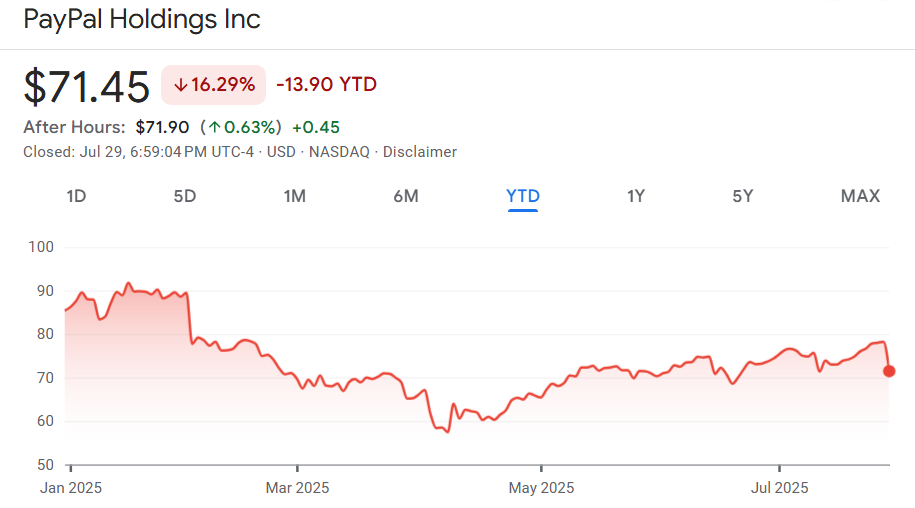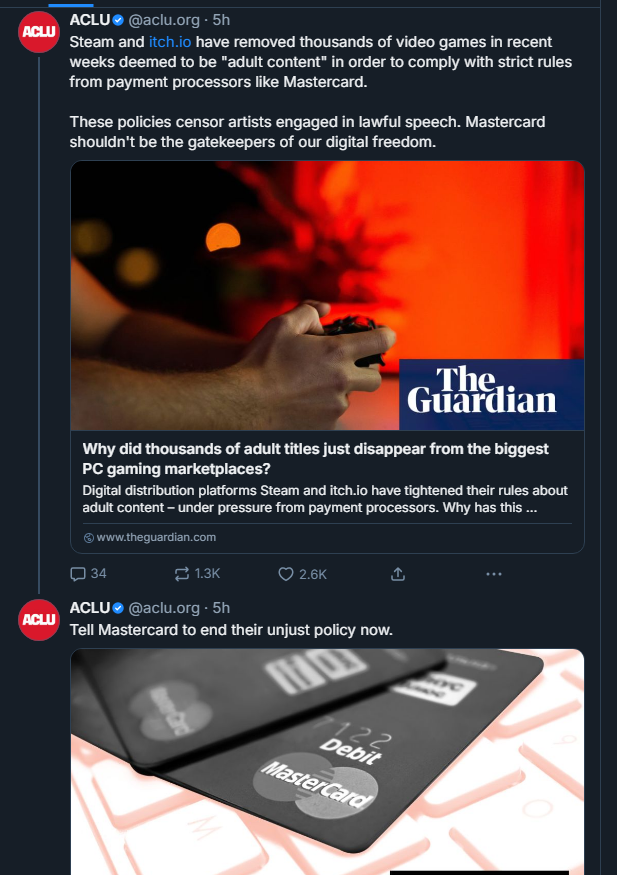The current payment processor/card network situation got me thinking about metrics. See, this was one of those things I kept bringing up during those stupid single day or week “blackout” boycotts that I’ve previously written about. They had little impact, save for one case. The blackouts were credited for damage to Target’s stock price. However, the day of the blackout protest, the stock actually rose. The rest of the month, however, it had been in steady decline, and continued to do so after the blackout day.
Because, investors rightly understand that blackout protests with fixed deadlines do not represent a consumer promising to never use the service or product again unless change is made, but rather one for whom waiting a week to get that good or service is acceptable to send an empty message.
Target’s stock dropped not because of a single blackout protest, but because of a protracted and ongoing boycott by black communities whom Target has spent the last several years marketing towards. Those communities have left where possible and have taken steps to avoid needing to return, to the degree even NewsWeek acknowledged it last month, though they claimed it had just started. That boycott was compounded with a black church movement to boycott Target for Lent, which while still a fixed time, is a more significant one, and long enough to build new consumer habits.
But I’ve drifted from my point, metrics. I brought this up in my post of the blackout’s as well, but part of a meaningful, long term protest is having some kind of barometer to measure against. There is a practical need for a measuring stick, and a recruitment/morale need as well.
Practically, we need something to measure against to know our actions are having an impact. We need to be able to see how different strategies affect the outcome. We need quantifiable data.
For morale, having a measuring stick also lets individuals feel like their impact has mattered. It’s not necessarily a matter of pride in one’s labor, but the knowledge that SOMETHING actually changed.
With the blackout protests, folks tried to use the coverage of the protests as their barometer. People were talking about the protests. They got cable news spots. They looked important and meaningful. But what did they do?
You can look to their one credited success, and those who actually earned it for a better metric; stock prices.
Both the Target Boycott and Tesla Takedown utilize, among other things, the stock prices of their respective companies to judge how effective their actions have been. Stock prices are affected by investor perception of the company, their concern for their wallets. It’s the actual language they speak.
I suspect this ridiculous situation, with it’s card networks, payment processors, murder of Waypoint 2.0, and christofascist “femminist” group, will one day provide a great case study on how metrics and feedback affect digital activism, and accidentally gamifying it. We have three publicly traded companies: PayPal, Visa, and MasterCard and a fourth, Stripe, who’ve been angling to potentially IPO. In the same pot we also have the ACLU petition to provide rather useful contrast.
Since Thursday July 24th the ACLU petition cleared its 100,000 signature and 150,000 signature goals. Each time it jumped up to a higher goal. Since then the only comment from the ACLU has been to encourage people to keep signing it…
Yeah. See, we’re clearing the first bar, it’s a functional measuring stick, but when nothing happens and the goal posts move further away, it leaves those who are most invested feeling like the action was pointless.
On the other side, we have the card networks and payment processors who are accidentally gamifying protesting their censorship.
I hadn’t even thought to check the stock prices until I saw the TipRanks story Ana Valens shared on them. MasterCard and Visa are only down about 1% each at time of writing, and even then both are up on the year, 7.8% up for MasterCard and 11.73% for Visa. Though as an additional wrinkle Visa just warped its Q3 earnings call with the extremely sound plan of investing in stablecoins and AI which is leading to some sudden drops in after-hours sales prices.

Paypal was not mentioned in the TipRanks coverage, but has also taken a major hit. 8.6% down on the day at time of writing. It’s also down 16.29% on the year. This in the face of a fairly steady increase in share price since mid June. (I’d include Stripe, but they’re not publicly traded and while many suspect they will IPO soon, the company itself has denied plans to do so. Stock traders want it, but that has not made it happen.)
As a point of order, Tip Ranks’ post did include the incorrect detail that Mouthwashing was deindexed from Itch as part of this issue. While I have legitimate grievances with Itch’s handling, I don’t need to allow false information through. Mouthwashing has not had its files hosted on Itch since October 2024.I think a nonzero amount of confusion is coming from people using these terms interchangeably. Itch has been using “indexed” to mean “the game files are hosted on itch and the game is available for purchase.” To Itch, Mouthwashing has been de-indexed since October 2024 when the devs removed the files and ability to purchase through Itch and added the link to the Steam page.
The Itch page for Mouthwashing is, additionally, delisted, which means it does not come up in searches, but the page does still exist. Here it is. I do not know and will not speculate when or by which possible party the game was de-listed or if it even had anything to do with Collective Shout’s actions.
As for that gamification I mentioned? Well, besides the nice progress/health bar stock prices provide, even if, yes, two of them are a bit astronomical in scale, Stripe and PayPal both try to hide their support phone numbers, with Stripe reportedly charging people money to get the real support number before allegedly shutting it off this morning. Effectively, they’re encouraging people to share the numbers once they find them out of spite as well as collective action.
Visa and MasterCard are trying to get callers to fall for traps like MasterCard’s concierge service and Visa directing folks to email. Traps once again shared, so they can be avoided as much out of spite for one’s own wasted time as joint effort.
While I feel sympathy for the call center employees, their escalating reactions to calls are also part of this. Sharper reactions to callers who see themselves as standing up for their right to buy legal products may get a few to drop it, but most will be galvanized.
A credit card company is an incomprehensibly large, downright eldritchian nightmare. But, the person being kind of snippy to you about a legitimate issue?
Annoying or aggravating at best.
And they keep telling callers they’re aware of the issue, begging them to stop calling at best, hanging up at worst. Individual people are receiving mild antagonism and evidence that their actions are having an impact. Directly from the employees, from the stock prices, and others sharing that on their own calls they were provided similar information.
Visa and MasterCard have made of their own employees the mildly annoying trash mobs farmed as part of a daily quest whose reward is stripping points away from their own, once eldritchian, health bars.
It’s a little bit of hope in a sucky world. Have you yelled at money yet today?
(also, remember that itch has a big queer authorial and comic space, since apparently Visa and MasterCard are being weird about the word “game”)
Thank you as always to my supporters for making all of this possible, as a reminder I really only make about $80 a month between Patreon, Ko-fi, and Twitch, so please consider throwing me and other creatives you enjoy a few bucks. I can honestly say every time I get a new $5 supporter I have to fight back tears, and I know plenty of folks are in the same boat as me.



